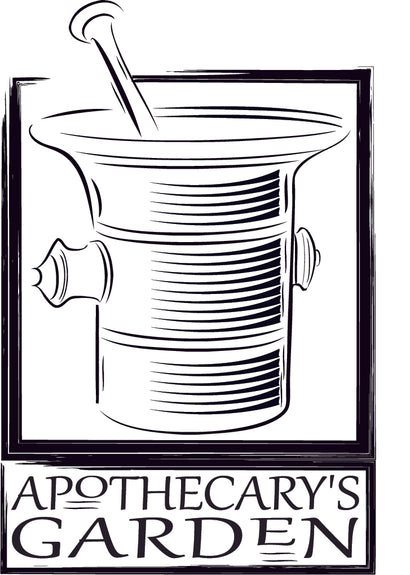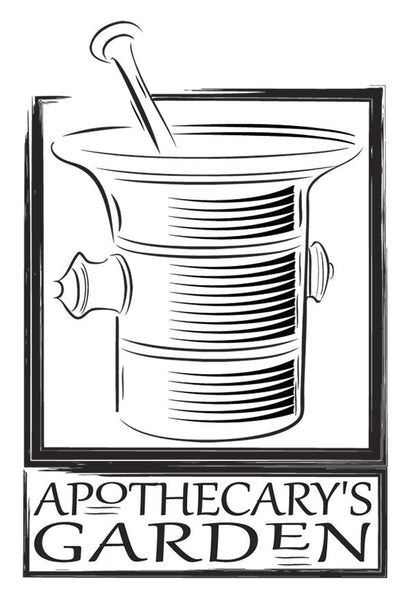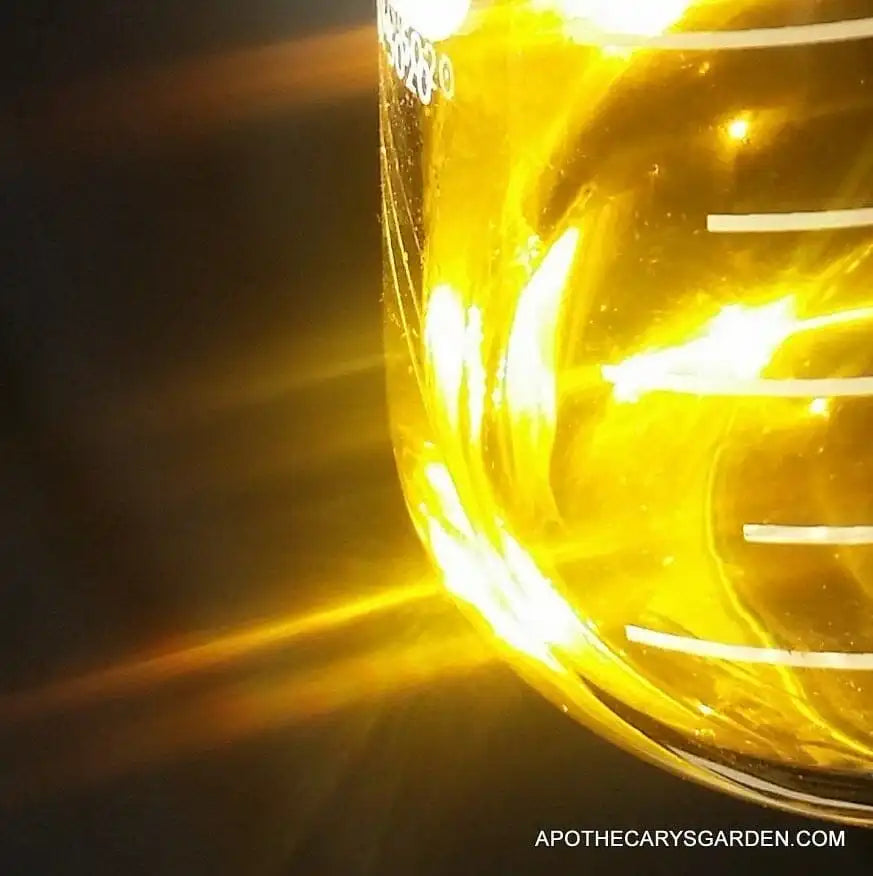
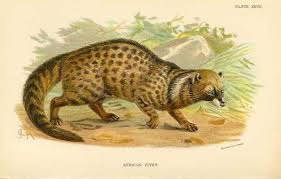
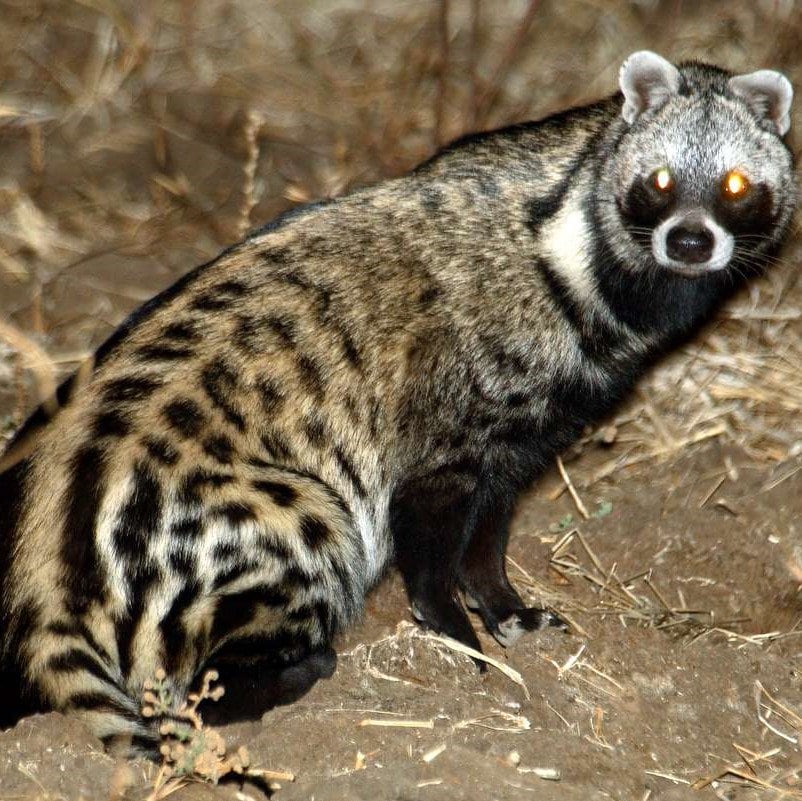
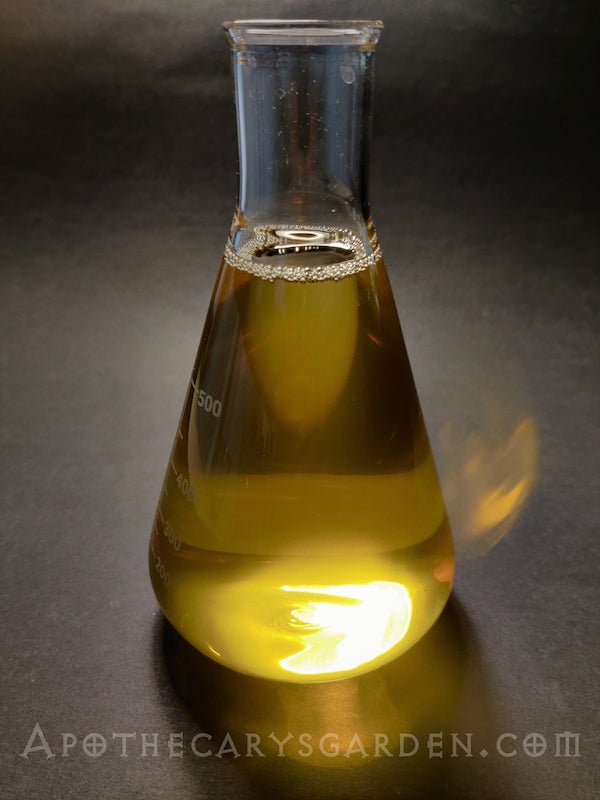
Civet oil-Natural Musk
This listing is for Civet oil produced from genuine Ethiopian Civet paste. It is an aromatic perfume ingredient and fixative that can also be worn on its own.
I have worked on the process of creating an oil of Civet for the past 6 years. A good quality aromatic oil cannot be produced directly from Civet paste due to the high amount of fat in the raw paste. I think I finally got it. I will write about it and share my method in the near future.
The oil has the strength and endurance of the popular Civet tincture @ 1:40 and is similar in its aroma. (https://www.etsy.com/listing/206435482/genuine-civet-tincture-perfume-tincture).
It lasts for a week on the scent strip and 2 weeks later I can still detect its presence.
Though this oil can be worn on the skin as is, (and I do so regularly), it's greater value lies in how it impacts perfume compositions. Adding a few drops of civet oil to even a simple blend of one or two botanical essential oils will highlight it's value in perfumery.
Please note, this is not the Civet oil that was commercially available decades ago. That was a compound perfume produced with synthetic materials.
As with all the animalic essences, it's impact on perfume blends is not proportional to the physical amount present. More does not mean better. A small amount adds dimension and changes a perfume blend in a way that is quite different from the addition of a botanical aromatic essence. I find it difficult to explain the mechanics of this and invite everyone to explore, experiment and share their insights with the effect of animalics on perfume compositions.
Civet is one of the rarest of traditional fragrance materials. It has been used for thousands of years as an exotic perfume ingredient and fixative. It lends depth, dimension and a note of erotic urgency to a perfume blend.
I can attest that it makes my heart skip at every sniff. I find it addictive, though it's not to everyone's liking.
Said to have been one of the gifts the Queen of Sheba brought to King Solomon, Civet is an aphrodisiac and thought to arouse desire in both sexes.
In North Africa and Arabia Civet paste and products containing Civet are traditionally used to treat hormonal imbalances associated with excess menstruation, acne and hair loss. This is a function one finds most animalics have in common.
The Civet, reminiscent of a cross between a Mongoose and a Raccoon, is of the family Viverridae. It has a perineal gland which produces a paste used to transmit sexual, social and territorial signals. Both sexes produce this material. This paste is collected and processed into a perfume absolute or tincture. The tincture has the unusual property of evolving with time and producing deep, sweet floral notes. Given the raw animalic intensity of the fresh paste, this is quite remarkable. Working with civet products hones one's patience and imagination.
There has been much controversy around traditional methods of keeping Civets for their musk, and rightly so.
The Western world has boycotted the use of Civet in the fragrance industry for decades due to the cruel traditional methods used to collect the paste. Though (As any Civet farmer will tell you), our Western food animals are treated no better, there is no excuse for the mistreatment of animals in any industry or country. This is a problem that needs to be addressed on a global scale.
After extensive research, numerous visits with farmers, middlemen and exporters of civet paste, I am convinced we have done more harm than good with our passive approach.
By turning our back and withdrawing our financial support from the industry we have increased the poverty of the traditional farmers, leaving them even less resources to effect change. We have added one more obstacle to an already struggling economy and have created a black market and back door for large corporations to continue using Civet products, unseen by the public eye.
Though we are boycotting this product, corporations and middlemen are still profiting while animals continue to suffer in much the same manner as in the 60's.
I believe that only through our active engagement as concerned and invested Western consumers can this unhappy situation be rectified.
Our interest in these products and financial support iare the only tools that can effect change in the industry.
If there is a market for this product, an ethical and profitable way will be found or created to make it happen. If we continue to ignore this situation it will continue as it had been for the past 60 or thousand years.
We are losing our natural aromatics and medicinals slowly all over the world through our own mismanagement and lack of involvement. Collectively we have a powerful voice. One that can change the world if we so choose.
With the advent of the internet, each and every one of us can instantaneously impact global concerns with something as small as the click of a mouse. As consumers, we are responsible for everything that happens in the world of industry and commerce. They exist only to serve us. Without our needs and market demand they would serve no one and cease to exist. Every click of a mouse is noted, tallied and used to direct our markets and industries. The power to change the world is collectively in our hands.
I believe that If there is a financial incentive, a healthy market, through our increased western demand, (our purchasing power), for high quality and ethically produced Civet products, the farmers and the government of Ethiopia will have the incentive and resources to modernize their practices and meet our ethical standards. To this end, I have been working for years with Civet farmers and exporters trying to design and implement a more ethical industry-standard centred around care of the environment and the animals.
Even if you have moral objections to the use of animal products, doing nothing about it does little to effect change. Trying to force the world to not use animal products through passive means is, as we can see here, not a solution.
The use of animal products in our food, cosmetics, traditional medicine and perfumes has been with us since the dawn of time. Rather than working to eliminate animal products from commerce, we could focus on finding ethical systems and solutions that honour both the planet and the animals.
For more information about the Ethical Civet dilemma, please read the post Ethical Civet, A View from the mountaintop.
http://apothecarysgarden.com/2014/04/30/ethical-civet-a-glimpse-from-the-mountaintop/
Thanks
Dan
Materials: Fractionated Coconut Oil, Civet Musk.
